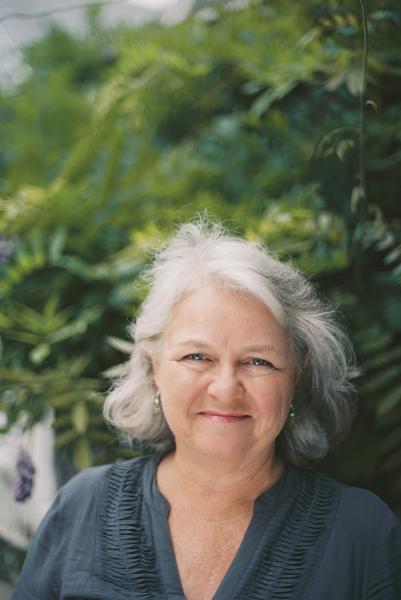The Gerald F. Else Lecture in the Humanities
Summary:
Everyone knows that a classical education equips you for whatever life may throw at you, that Homer and Plato and Sophocles speak to the twenty-first century, but it’s also true that ordinary life can prepare you to study the classics. Who you are when you come to a text—say, Sophocles’ Antigone—can give you an intimate experience that you wouldn’t have had if that text had been thrust at you as “required reading” before you were ripe for it. I was in my thirties, working as a copy editor at The New Yorker, when I began studying modern Greek in order to travel; I fell in love with the Aegean, and immersed myself in classical Greek. It was a kind of therapy. When I got an opportunity to write about Greek, thirty years after my first enchantment, it seemed as if all my life had been leading to this. I dove into the scholarship, reading introductions and afterwords, footnotes, endnotes—all the scholarly apparatus. Scholarly books put the acknowledgments first and sum up their arguments neatly in the introduction, whereas journalists, hoping to inject suspense, grudgingly supply a “nut graph” and leave their acknowledgments for last. There were areas I had to acquire a deep knowledge of in order to write about superficially. Some of my favorite rabbit holes: the alphabet, the transmission of classical texts, Homer, the bizarre death of Milman Parry, code breakers who died young, schools of translation, gods and goddesses in the age of marketing (Apollo Electric, Hermes Hauling, Odyssey Phone Repair), the poet James Merrill (who lived in Athens as a rich young gay man), Freudian terminology, U.S. towns with Greek names, the shield of a fire chief (my father) and how it evokes Achilles and the world of the hero . . . Some of these things survived in the book as a single sentence, some not at all.
How can a person, condensing all her experience and following up every lead, write something that is both accessible and serious, neither too detailed for the nonspecialist nor too callow for the scholar? On the one hand, I didn’t have enough classical Greek to impress a scholar, and, on the one hand, I didn’t have enough modern Greek to hold my own with a native. A book that filtered Greek through me would have something to disappoint everyone. But I kept reminding myself that epic poetry and philosophy and tragedy are not solely the province of the scholar. Like the earth, “holy and inexhaustible,” they belong to us all.
Summary:
Everyone knows that a classical education equips you for whatever life may throw at you, that Homer and Plato and Sophocles speak to the twenty-first century, but it’s also true that ordinary life can prepare you to study the classics. Who you are when you come to a text—say, Sophocles’ Antigone—can give you an intimate experience that you wouldn’t have had if that text had been thrust at you as “required reading” before you were ripe for it. I was in my thirties, working as a copy editor at The New Yorker, when I began studying modern Greek in order to travel; I fell in love with the Aegean, and immersed myself in classical Greek. It was a kind of therapy. When I got an opportunity to write about Greek, thirty years after my first enchantment, it seemed as if all my life had been leading to this. I dove into the scholarship, reading introductions and afterwords, footnotes, endnotes—all the scholarly apparatus. Scholarly books put the acknowledgments first and sum up their arguments neatly in the introduction, whereas journalists, hoping to inject suspense, grudgingly supply a “nut graph” and leave their acknowledgments for last. There were areas I had to acquire a deep knowledge of in order to write about superficially. Some of my favorite rabbit holes: the alphabet, the transmission of classical texts, Homer, the bizarre death of Milman Parry, code breakers who died young, schools of translation, gods and goddesses in the age of marketing (Apollo Electric, Hermes Hauling, Odyssey Phone Repair), the poet James Merrill (who lived in Athens as a rich young gay man), Freudian terminology, U.S. towns with Greek names, the shield of a fire chief (my father) and how it evokes Achilles and the world of the hero . . . Some of these things survived in the book as a single sentence, some not at all.
How can a person, condensing all her experience and following up every lead, write something that is both accessible and serious, neither too detailed for the nonspecialist nor too callow for the scholar? On the one hand, I didn’t have enough classical Greek to impress a scholar, and, on the one hand, I didn’t have enough modern Greek to hold my own with a native. A book that filtered Greek through me would have something to disappoint everyone. But I kept reminding myself that epic poetry and philosophy and tragedy are not solely the province of the scholar. Like the earth, “holy and inexhaustible,” they belong to us all.
| Building: | Rackham Graduate School (Horace H.) |
|---|---|
| Event Type: | Lecture / Discussion |
| Tags: | Classical Studies, Modern Greek |
| Source: | Happening @ Michigan from Modern Greek Program, Kelsey Museum of Archaeology, Interdepartmental Program in Ancient History, Interdepartmental Program in Ancient Mediterranean Art and Archaeology |


